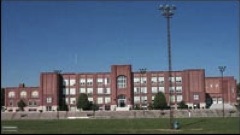Parents
Parents as experts?
03/09/09 21:17

Photo by Brittany_G
When I go to the doctor, I expect to work with someone in a partnership to figure out what is wrong or to assess my current health situation. I don’t want a doctor who is offended when I suggest possibilities or when I do research on the net. I respect his or her experience and expertise, but I know my body. The best doctor/patient relationship is a partnership. If it isn’t, I’ll go elsewhere. There may be times in an emergency situation when I might rely more heavily on the doctor’s expertise, but usually if I don’t agree or don’t feel I’m being listened to, I’ll seek another opinion (or just avoid going—not a good alternative). Unfortunately, too many doctors still have the “god complex,” and bristle at any give and take.
School districts are facing the same philosophy tug-of-war. Educators want parents to be more involved in their kids’ academic lives, but not everyone agrees on their role in the school district. How much say do parents collectively have over curriculum? Does a district appoint a parent to the curriculum committee to give lip service to including parents’ views or do they actively seek and incorporate their input? Do the teachers and administrators have a “we know better—we’re the professionals” attitude, or do they value parents as equal experts with a different perspective?
Put that curriculum on the website!
10/08/08 11:47

Rockwood: detailed information on curriculum by content area, info on curriculum development, easy-to-use website
Mehlville: pdf of each grade and high school
MRH: pdf of each school level (elementary, middle, high) and content area, assessment report, easy-to-use website
Clayton: info on curriculum development including names of curriculum coordinators but not information on content level or grade level objectives
Ladue: info limited to elementary math under the district curriculum section
Ferguson-Florissant: no information on district site that I could find via browsing or by search, no info in at least two elementary schools (Airport Elementary, Bermuda Elementary)
SLPS: no information that I could find via browsing, no search available; no info in at least three elementary schools (Adams, Ashland and Cote Brilliante)
Since curriculum drives education, I applaud Rockwood and MRH for having comprehensive, easy-to-use curriculum sections on their websites. Clayton and Ladue have some catching up to do. Ferguson-Florissant and the SLPS are embarrassingly lacking in this area. While I didn’t look at every district’s website, I encourage educators to think about what they include and emphasize on their websites and the message that sends to their parents and broader community.
Need for more transparency, participation in education
10/03/08 12:45

Photo by GPTwisted
As quickly as the financial
School districts can learn from the Sunlight Foundation and involve the community earlier in the process. Some St. Louis County districts use BoardDocs to post agendas, minutes and supporting documents in an easy-to-access manner. (See Rockwood for an example)
I would like to see them go one step further and open up documents for a public markup period before they make it to the board presentation stage. For example, if a committee is going to recommend changes to content area’s curriculum, posting the proposed changes before the board presentation allows for more parent involvement than the one or two parents selected to be on the committee. This encourages buy-in or at least allows for time to work on consensus.
Openness and transparency can go a long way to bring our schools into the 21st century.
Parents tracking their kids' attendance, grades online
09/17/08 14:53

Photo by Ian Fuller
When Sarah Brodsky of Show-Me Institute asked why St. Louis area weren’t being more innovative by implementing programs such as online grade and attendance monitoring by parents, I was surprised as I thought they were doing that. After checking most of the county school districts, I found that they were. (I couldn’t find it on Parkway’s website. Do they not have it or is it just not easily found on the website? They do have online lunch accounts, which I wish my kids’ district had, so I’m assuming they have chosen not to have attendance and grades monitoring.)
The St. Louis Public Schools did not have any online monitoring that I could find. For a district that struggles with attendance, I would think that allowing the parents to easily check on their kids’ attendance and tardies would be a high priority. “Johnny, you were tardy for biology again today. You’re grounded!”